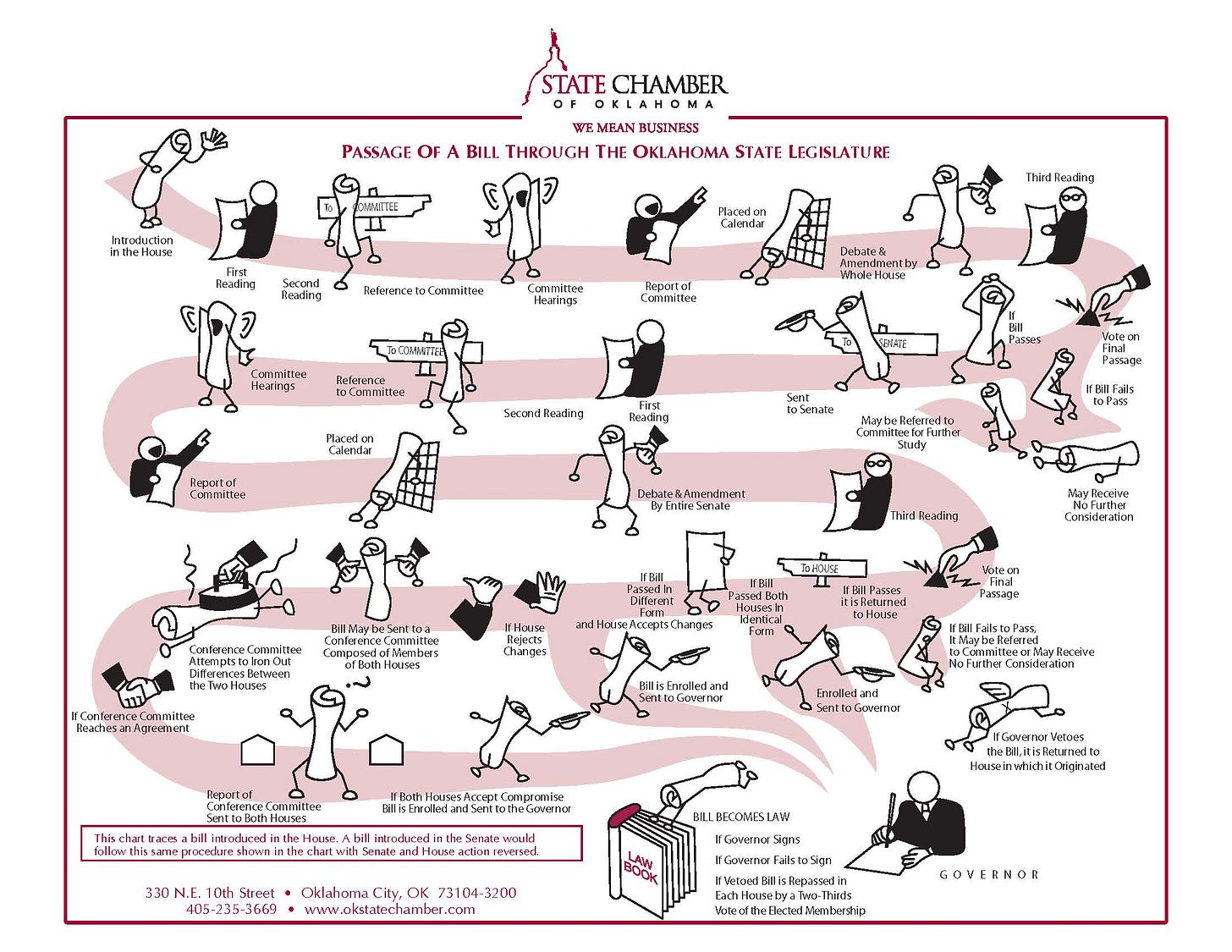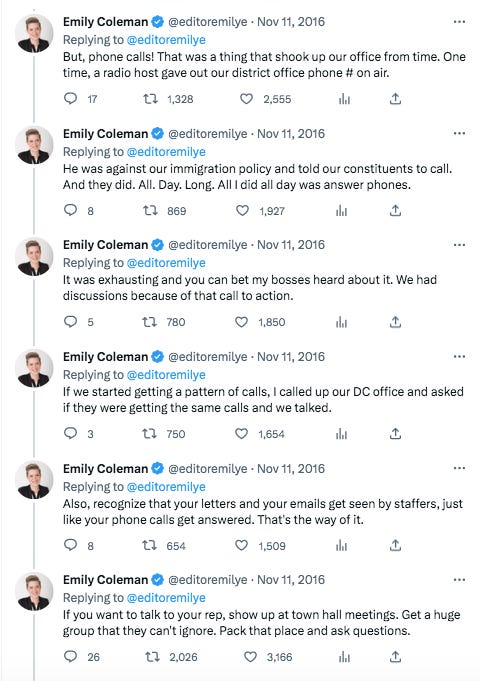Tools You Can Use to Navigate a Tricky Legislative Session and Track Cannabis Interests across Oklahoma Politics
Free resources to help organize and track policy, find special interest groups, and beyond
*This is a rewritten post from a previous year, it includes all the same resources and a few more. This has not been sponsored or endorsed by any services listed, just some that I’ve found most helpful over the years. Sharing is caring, I want everyone to be able to keep our cannabis programs working for them in a positive way, and hope something like this will help.
The Legislative Session Began with Oklahoma Governor Kevin Stitt’s State of the State address to a full Capitol of mixed responses, some applause, and a rotunda of protestors.
As the month progresses and many cannabis bills move to committee and beyond while alongside an upcoming Adult-Use Recreational Cannabis Special Election on March 7, here are some free resources you can use and how to use them, to help advocate for your rights and the rights of your loved ones.
Bill Tracking with the OK Legislature site and Legiscan
Legiscan is a bill tracker platform for following state legislatures and bills filed with many features. You can register for a free account with an email address that allows you to monitor up to 50 bills at one time with email alerts when something changes on them. You can definitely used the Basic or Advanced Search tools via the Oklahoma Legislature site, but I like the functionality here to be able to sort bills by actions, who filed them, search texts, and also see what else a particular legislator filed within the session.
OMMA has a legislative page where the post and update bills as well, but you may want to track them separately from their website or set up the email notifications outside of this, or search bills that are a little out of their direct purview but still related to cannabis like criminal justice code tweaks or labor laws etc.
Oklahoma Ethics Commission and OK Guardian
The Oklahoma Ethics Commission is an agency of the state of Oklahoma that issues rules on the ethical conduct for state elected officials and employees, and also enforces those rules. One can search candidate filings and Political Action Committee information here, and also search/view registered lobbyists.
Example - see the “SQ788 is Not Medical” PAC filings at this link.
Some of this data you may wish to also cross reference with other types of campaign finance resources, social media group posts if they post information there, and even OMMAVerify if you are searching someone who has claimed cannabis business ownership in the media or similar.
The OK Policy Institute
The OK Policy Institute is a non-profit think tank that promotes equitable access, and they maintain good articles and blogs on legislative processes, including things like glossary terms. If one is brand new to getting involved in citizen advocacy and lost on terms like shell bill or single-subject rule, or more, one may make good use of their “What’s That” section that helps define all the jargon. They’ve also covered the state budget and past state questions.
Two Guides for Contacting Your Reps— and Yes, it’s Still Okay to Do that
Here’s a pdf of the Call the Halls Guide, written by Emily Ellsworth, a former Utah Congressional Staffer. I cannot recommend this one enough, it’s a more thorough guide based on a small thread of tweets she wrote in 2016 about her experiences with emails vs calls from constituents.
This guide has also inspired this Youtube video by Folding Ideas -
So there are a few formats for getting started with that.
Oklahoma currently has a conservative supermajority, and many of these are partisan bills, but don’t let that discourage you as when SQ788 passed it had wide bipartisan support. Legislators doing the job of representing Oklahomans need to hear from the Oklahomans they represent.
You can even start letting lawmakers know how you feel about these bills when they are in committees early in the process, to help try to get the bills to die in committee early; when the bill is presented in the full Senate/House is when your Representative or Senator will be voting specifically yay/nay against it, unless they are on the committee to which that bill has been assigned. You can find lists for OKLEG committees for Senate here, and committees for the House here (both chambers also have subcommittees but you can see where bills are assigned in Legiscan linked above in the post, and each chamber has a calendar like this one, to give you an idea of their deadlines).
To find your Oklahoma legislators, you can use the Oklahoma Legislature website lookup, and also the Oklahoma Voter Portal as your district info is also on the back of your voter registration card and available through that database.
If you live in districts with local papers some of those Representatives may update those reporters and include their contact info there on the media releases as well, but you can always find their contact info through these websites.
It’s still important to reach out on bills that could restrict our rights. Maybe it’s a bill that is something that matters more to you than cannabis access -that’s the focus here on this blog itself, but it’s been a busy few years and lots of things are changing!
There are direct actions and protests that everyone can do, but it also takes speaking to the lawmakers about the flaws in the policy in a way that will help change it. All of these are useful components in advocacy.





